- Home
- Timothy Zahn
The Third Lynx (Quadrail Book 2) Page 17
The Third Lynx (Quadrail Book 2) Read online
Page 17
The lobby was tastefully dark and quiet, its walls and end tables adorned with a wide variety of small paintings, sculptures, and other art works. A handful of Tra’ho’seej were seated in the various overstuffed chairs and couches, apparently in deep contemplation of the culture arrayed around them. All of them looked up with varying degrees of shock or outrage as I sprinted through their midst to the check-in desk and its self-service computer terminals.
I was still punching keys when Gargantua’s two Halkan buddies caught up with me.
I’d fought against walkers enough times to have a fair idea of the sort of tactics the Modhri favored. This mind segment was no exception. The first Halka came at me with arms spread wide, ready to take the brunt of my attack and then immobilize me with a bear hug, leaving his partner free to mete out whatever punishment the Modhri decided I’d earned.
Naturally, I had no intention of playing it that way. Waiting until the last fraction of a second, I dodged to my right toward one of the unoccupied couches. The second Halka had anticipated the move, angling past the first in an attempt to cut me off. I reached the couch ahead of him, and as he jabbed a fist at me I ducked down and rolled over the couch back, landing on the cushions and continuing my roll off the couch and onto the floor.
The Halkas were already onto the change of plan. The first continued with his forward motion, probably aiming to circle around the far side of the couch, while the second braked and reversed to go around the near side. Two more seconds, and they would have me neatly corralled.
Or so they thought. Rolling back up to my feet, I killed my own momentum; and as they came charging around the ends I dived again for the couch, jumping on the cushions and leaping over the back.
At this point most normal opponents would probably have cursed or spat or otherwise shown some annoyance. Not the Modhri. He fought in silence, his Halkan walkers merely reversing direction in response to my move. I took a long step toward one end of the couch, and as the nearest Halka again reached for me I scooped up the delicate metalwork sculpture from the end table and threw it into his face.
I was still dodging and sparring when the police finally arrived.
The hotel manager was livid.
[Payment from the criminal,] he kept repeating over and over in Seejlis as the cops cuffed my hands behind me, the normally fluid Tra’ho language sounding a lot less melodious than usual. [Payment in art and in money.]
The cops made the sort of soothing noises cops everywhere in the galaxy make to outraged victims and marched me out into the street.
Where I found myself smack dab in the middle of a jurisdictional dispute.
It was a beaut, too, as near as I could decipher from the rapid-fire argument going on. On the one side was the chief cop on the scene, who had me dead to rights and clearly wasn’t interested in handing me off to anyone else. On the other side were two of the government oathlings I’d just run out on, whose Modhran controller was equally adamant that I not be locked up where I couldn’t help him find Stafford and the Lynx.
Of course, the oathlings had no idea of why they were fighting so hard to keep me out of jail, and it was weirdly amusing to watch the mental and verbal gymnastics they were throwing themselves into to make their point. Still, words and arguments were their profession, and I gave them five to three odds of winning.
I hoped they would, too, for the cops’ sake. From the look on Gargantua’s face as he gazed at me from one of the knots of gawkers it seemed likely that if the cops took me away their friends guarding the jailhouse might not survive the night.
Casually, I sent a gaze around the area. From the size of the muttering crowd out there it looked like my little fracas had roused pretty much everyone within a two-block radius. Certainly it should have roused anyone in the Fraklog-Oryo Hotel.
But there was no one in the streets except Tra’ho’seej, no one peering out the windows except more Tra’ho’seej, and no one on the rooftops at all.
Which meant I’d ruined a few perfectly good art objects, not to mention risking my neck, for nothing. Fayr was apparently out for the evening.
If he’d ever been here in the first place.
A light rain began while the argument continued, and everyone in sight proceeded to either pull out a fold-up hood from their coat collars or produce a compact hooded plastic poncho from some pocket. Apparently, sudden rains were a part of the local climate, part of the guidebook I must have missed.
The Halkan walkers didn’t seem to notice. They stood there motionlessly, water running down their heads and dripping off their snouts, their eyes focused on me. Morse took off his jacket and offered it to Penny, who draped it hoodlike over her head for protection, while Morse himself held a forearm pressed to his forehead to at least keep the water out of his eyes. Bayta, for her part, seemed as oblivious of the precipitation as the Halkas, her eyes haunted as she gazed at the crowd surrounding us.
As for me, with my hands cuffed behind my back, I had no other option but to simply get wet.
It took a good fifteen minutes, plus at least three comm calls from each side of the argument, but eventually the cops gave up. My cuffs were removed, the hotel manager was soothed some more, and with baleful looks that were evenly distributed between me and the oath-lings the cops piled back into their cars and took off.
That was apparently the signal the bystanders had been waiting for as well. A few of them shook the rain from their hoods or ponchos and trooped into the hotel with the manager, presumably to commiserate with him over a drink and survey the crime scene for themselves. The rest melted back away to their homes and gardens and cafés.
A minute later we were standing alone under the dripping sky. Penny, Bayta, Morse, me, and the Modhri’s other twenty walkers.
“A waste of time and energy,” Gargantua said. He was no longer glaring, but merely studying me expressionlessly. In some ways, his calm was more unnerving than the glare had been. “Did you really think you could escape me?”
Briefly I wondered what his reaction would be if I told him I’d merely been trying to make enough noise to attract the attention of a homicidal chipmunk-faced commando. But I was still hoping we might run into Fayr somewhere else along the way. “I wasn’t trying to escape,” I said instead, wiping some of the rainwater off my face. “I was curious to see how far you’d go with your walkers.”
“And did you learn anything?”
I looked at the rich and powerful Tra’ho’seej still loitering around the area. Their expressions and eyes were back to normal, the brief episode of full Modhri control long since over.
But their attitude had definitely changed for the darker. No longer did they imagine—no longer could they persuade themselves—that they’d all simply stepped out for an evening stroll with friends and acquaintances. They were watching the four of us intently, apparently convinced that potentially dangerous aliens shouldn’t be allowed to run free and wild without someone in authority guarding them. “I still wonder how you get away with these personality blackouts,” I said, looking back at Gargantua. “You’d think someone would eventually catch on.”
For a moment he gazed at me in silence. “I saw an old book on Human stage magic once,” he said at last. “One of the illusions it described involved a large wheeled war device for hurling round shot at an enemy. I don’t know the proper term.”
“A cannon?” I suggested.
“Yes, that was it,” the Modhri said. “In this case, it was to be loaded with a Human, who would then supposedly disappear as it was fired. After the Human entered the barrel, the cannon was swiveled completely around on the stage so that the audience could see that there were no tricks involved.”
“And the trick was …?”
“The trick was that as the cannon finished its rotation, a set of false spokes slid into the openings between the lower spokes of the wheel facing away from the audience,” the Modhri said. “They were so engineered that they appeared to be the spokes of the front wh
eel, which had just happened to block the observer’s view of the rear of the stage.”
I nodded as I understood. “And every observer simply thought he was the one in the bad seat,” I said, “not realizing that everyone else was seeing the same blockage and was thinking the same thing.”
“Exactly,” the Modhri said. “With the audience’s sight thus completely blocked, the Human was free to slip invisibly through a hidden door in the base of the cannon and lower himself behind the rear wheel to a concealed trapdoor in the floor without being observed.” Gargantua’s doglike snout curled slightly. “I trust you see the similarities.”
I did, of course. As long as each Tra’ho in the group thought he was the only one having strange memory lapses, he wasn’t going to think much about it, especially with the Modhri continually whispering soothing theories and rationalizations in his ears. If all of them ever got together and compared notes, they might begin to wonder.
But that would never happen. The Modhri would make sure of that. “We have much better magic tricks now,” I said.
“Illusion is still only illusion,” he said. “But I grow weary of this stalling. Take me to the Lynx.”
“Fine,” I said, gesturing down the street. “Like I said, we start at the art museum.”
I took a step in that direction. Gargantua didn’t budge. “You think me a fool?” he demanded, some of his earlier anger peeking out again.
“Don’t worry, this time we can all go together,” I said. Looking over his shoulder, I caught Penny’s eye and beckoned.
She started to move forward, came up short as the Halka guarding her tightened his grip on her arm. “No,” Gargantua said flatly. “You and two of my Arms.”
“I need Ms. Auslander,” I insisted. “Stafford won’t show himself unless she’s there.”
“The other Human female is similar enough,” Gargantua countered. “She will go with you.”
I looked at Bayta. Her face was as expressionless as Gargantua’s had been a minute ago, but her body language was tied in tension knots. She also didn’t look a thing like Penny. “She’s not nearly similar enough,” I said. “Not to other Humans.”
Two of the Halkas took Bayta’s arms and walked her over to us. “If she does not go, then she will die,” Gargantua said.
Bayta was staring unblinkingly at me. “In that case, I guess she goes,” I said.
“And no others,” Gargantua said.
“No others,” I conceded, trying to avoid Penny’s sudden look of stunned panic. Clearly, she’d expected me to fight harder for her freedom.
And I wanted to. Desperately. But there was nothing I could do against odds like these. I would have to cooperate and hope the Modhri made a slip somewhere along the line.
“But first,” Gargantua continued, “you will give me the name.”
Bayta’s face went suddenly very still. “What name?” I asked carefully.
“The name you were searching for in that hotel,” Gargantua said. “The name the Human Daniel Stafford is traveling under.” His snout curled back to reveal his teeth. “The name the Human Künstler gave you before he died.”
I flicked a glance at Bayta, my back muscles twinging in memory. Apparently, Gargantua hadn’t reached the scene in time to hear Künstler’s actual last words. But he’d been in time to see the dying man’s lips moving. “He didn’t give me any name,” I said.
From behind me came a sudden gasp. I spun around, my stomach tensing, to see one of the Halkas gripping the nerve center on Penny’s forearm. Her face was contorted in surprise and pain. “I can hurt her much worse than that,” Gargantua reminded me.
I took a deep breath. Penny was watching me closely. So was Bayta. “Daniel Mice,” I said. “Now stop hurting her.”
A flash of surprise and disbelief flashed across Bayta’s face as Gargantua took a sideways step and gazed at my profile. “Speak the name again,” he ordered.
“Daniel Mice,” I repeated.
For a moment he was silent. Then, to my relief, the Halka released Penny’s arm. “Yes,” he said at last. “Those were indeed the lip movements. Daniel Mice,” he repeated, his voice gone thoughtful. “But Mice is a form of Earth vermin.”
“It also refers to a famous cartoon figure you may have seen in dit rec animations,” I said. “Apparently Stafford has a sense of humor.”
Out of the corner of my eye I saw several of the Tra’ho’seej pull out their comms. The Modhri would have certainly already done a planetwide search for the name Daniel Stafford. Now, he was about to do the same for Daniel Mice, plus all the variants he could come up with.
One of the oathlings who hadn’t hauled out his comm broke away from the rest of the group and came toward us, pulling off his poncho as he did so. [For the female,] he said, handing the poncho to Gargantua. He gave Bayta a courteous little bow, as befit a culture that held females of all species in high regard. Then, with a brief glower in my direction, he returned to his place in the informal picket line.
“Put it on,” Gargantua said, handing the poncho to Bayta. “It will help disguise you.”
So the Modhri had conceded my point that Bayta and Penny didn’t look alike. Interesting. “You might as well,” I confirmed to Bayta. “That’s the kind of sky that could rain on us all night.”
I looked around again as she began to work her way into the garment. Gargantua didn’t wait for her to finish, but headed silently back to where the fourth Halka was guarding Penny and Morse. Either the Modhri wanted to keep him back in reserve, or else he’d decided that Gargantua’s presence at Penny’s side would be more of an incentive for me to behave myself.
Or maybe I’d hurt him badly enough that the Modhri wanted to let him recover a little before throwing him into battle again. I rather hoped that was the case.
I looked around us. Now that the non-Modhran spectators had dispersed, the streets were nearly deserted. Two streets away, I could see a couple of Tra’ho’seej walking arm in arm, young lovers perhaps out for a romantic stroll in the evening rain. Occasional vehicles appeared briefly as they crossed the various intersections in the distance, though none came our direction. Half a block ahead, at the mouth of an alleyway on the far side of the Fraklog-Oryo Hotel, a lone figure in a rain poncho and badly worn clothing had broken into a public trash receptacle and pulled out several of the compressed blocks. Two of the blocks had already been prodded apart into little piles of assorted garbage at the edge of the sidewalk, and he was laboriously poking at a third with a crooked stick, searching for food or buried treasure or God only knew what.
And at the edge of the nearest pile to us, squarely in the middle of the sidewalk, was possibly the last thing I would have expected to see on an alien world: a bright yellow banana peel.
Bring with you that strange but interesting gift of Human humor, Fayr had said in his message. The whole galaxy seemed to be either intrigued or outraged by what we Humans considered funny. And without a doubt one of the strangest and most outrageous forms of Human comedy was classic vaudeville slapstick.
Including the venerable tradition of slipping on a banana peel.
I took another, harder look at the scavenger’s back. It could be, I decided. It could very well be.
And suddenly our odds were looking a whole lot better.
Bayta finished settling the poncho into place. “I suggest you hang back a little,” I told the two Halkas as I stepped to Bayta’s side. “Stafford isn’t likely to come out if he sees a crowd.”
Neither of them replied, but in unison they took a step closer to us. It was about the response I’d expected. “Fine—have it your way,” I said. Taking Bayta’s arm, which was oddly stiff and unyielding, I started us toward the museum.
We were about ten paces from the hooded scavenger when he gave a startled little yelp, his hands bobbling something in front of him as if he’d suddenly come into possession of a bird that was trying desperately to get away. A second later the unknown object shot out of his grasp,
arcing high over our heads.
And as every other eye in the area automatically swung to track its flight, I grabbed the back of Bayta’s head and buried her face against my shoulder. Pressing my own face against the side of her head, I squeezed my eyes shut.
The blast was surprisingly quiet, not much louder than a kid popping a paper bag. But the intensity of the flash more than made up for it. Even through closed lids and with my face turned mostly away it was bright enough to make me wince. God alone knew what it was doing to all those unshielded Tra’ho and Halkan eyes.
Though perhaps the strangled gasps from our two watchdogs were a clue. Getting a grip around Bayta’s shoulder so I wouldn’t lose her, I veered sharply to my right, hoping to get us out of grabbing range before the Modhri recovered from the shock and got his Halkas hunting us by sound and touch.
We’d made it barely three steps when a pair of louder cracks, the sound of large-caliber killrounds, rendered the point moot.
And then a strong hand grabbed my arm at the elbow, urgently pulling me along. Cautiously, hoping he didn’t have a second sunburst grenade already on line, I opened my eyes to slits.
It was Fayr, all right. The stripe pattern on his chipmunk face had been radically altered, and there were the first signs of age-graying on his cheek fur. But his eyes were bright and steady as he peered over his shoulder from beneath his hood, and there was no mistaking the professional steadiness with which he held the large handgun pointed warily past my side. Turning my head, I looked at the crowd of walkers behind me.
It was as if Fayr had lobbed a concussion grenade squarely into their midst instead of just setting off a sunburst half a block away. All of the Tra’ho’seej had dropped to the ground and were writhing on their backs in agony. Writhing in perfect unison, actually, with each to and fro and squirm duplicated by all of them. It made the whole thing look like some strange dry-land version of synchronized swimming.

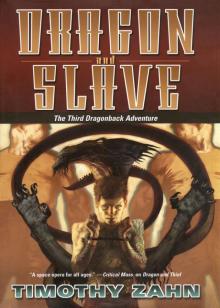 Dragonback 03 Dragon and Slave
Dragonback 03 Dragon and Slave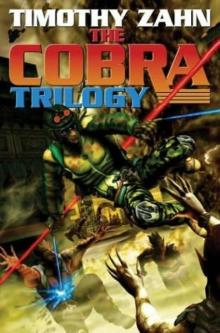 Cobra Bargain
Cobra Bargain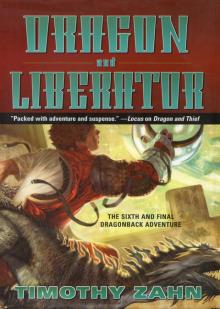 Dragonback 06 Dragon and Liberator
Dragonback 06 Dragon and Liberator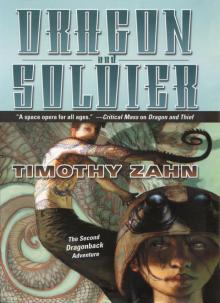 Dragonback 02 Dragon and Soldier
Dragonback 02 Dragon and Soldier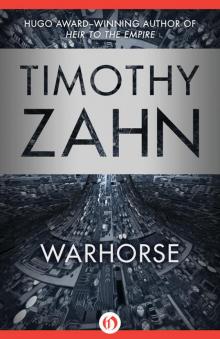 Warhorse
Warhorse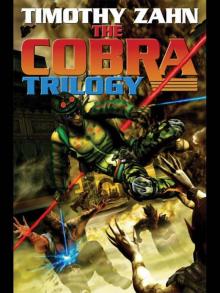 The Cobra Trilogy
The Cobra Trilogy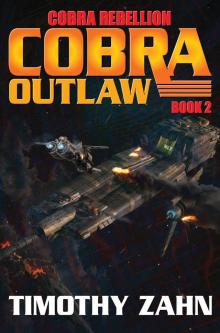 Cobra Outlaw - eARC
Cobra Outlaw - eARC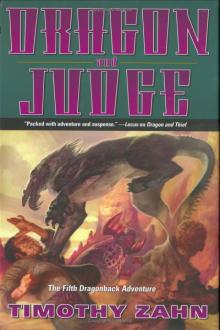 Dragon and Judge
Dragon and Judge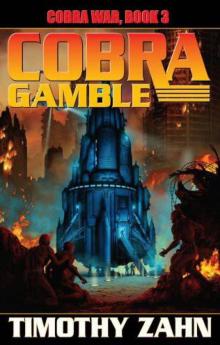 Cobra Gamble
Cobra Gamble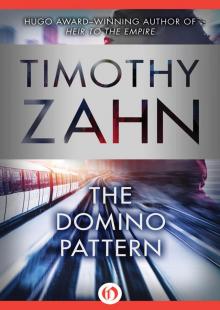 The Domino Pattern
The Domino Pattern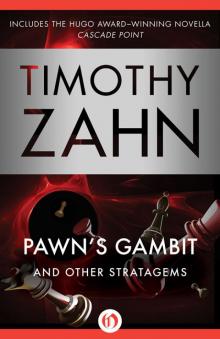 Pawn's Gambit: And Other Stratagems
Pawn's Gambit: And Other Stratagems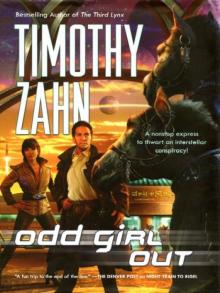 Odd Girl Out
Odd Girl Out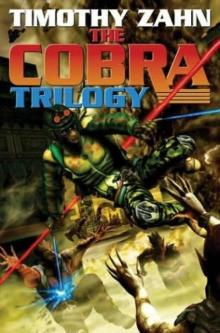 Cobra Strike
Cobra Strike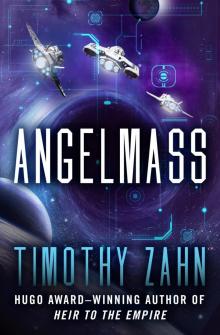 Angelmass
Angelmass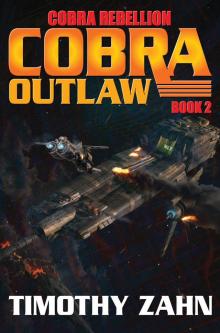 Cobra Outlaw
Cobra Outlaw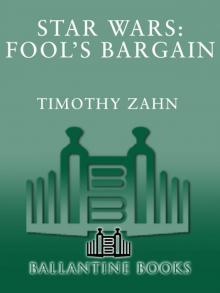 Heir to the Empire
Heir to the Empire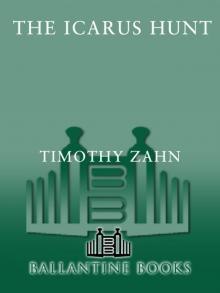 The Icarus Hunt
The Icarus Hunt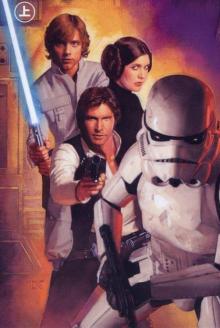 Star Wars - Thrawn Trilogy - The Last Command 03
Star Wars - Thrawn Trilogy - The Last Command 03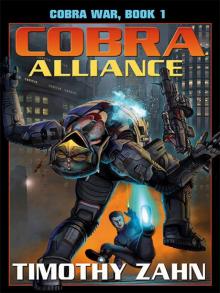 Cobra Alliance
Cobra Alliance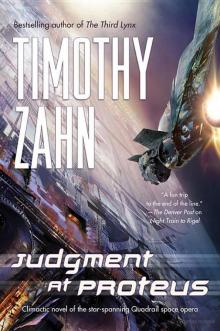 Judgment at Proteus
Judgment at Proteus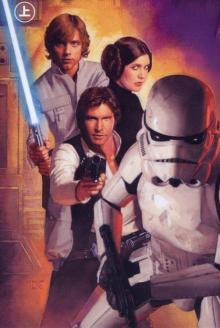 Star Wars - Thrawn Trilogy - Dark Force Rising 02
Star Wars - Thrawn Trilogy - Dark Force Rising 02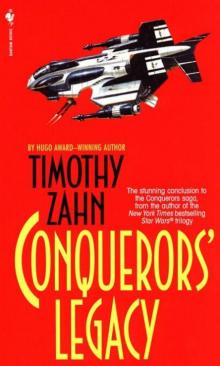 Conquerors' Legacy
Conquerors' Legacy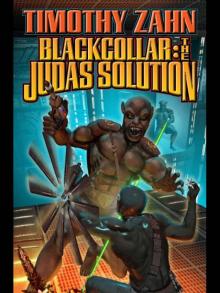 The Judas Solution
The Judas Solution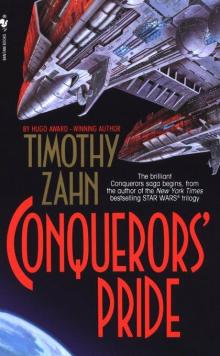 Conquerors' Pride
Conquerors' Pride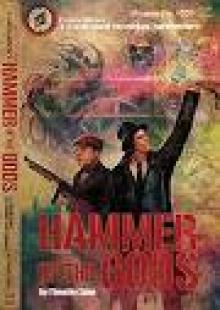 Hammer of the Gods
Hammer of the Gods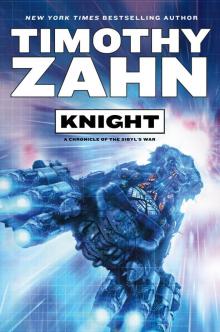 Knight
Knight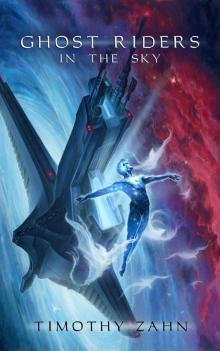 Ghost Riders in the Sky
Ghost Riders in the Sky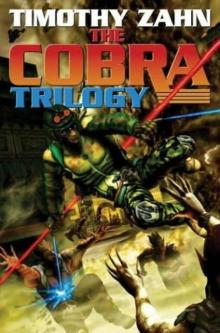 Cobra
Cobra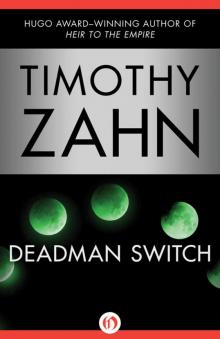 Deadman Switch
Deadman Switch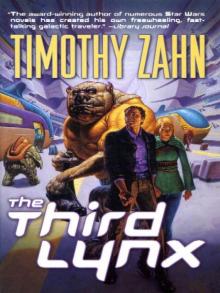 The Third Lynx
The Third Lynx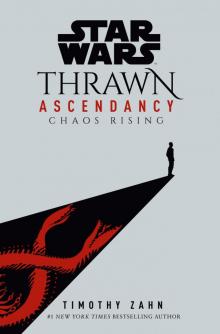 Chaos Rising
Chaos Rising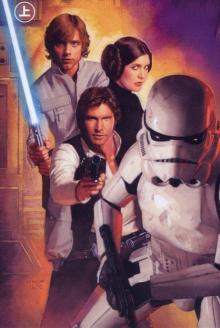 Star Wars - Thrawn Trilogy - Heir to the Empire 01
Star Wars - Thrawn Trilogy - Heir to the Empire 01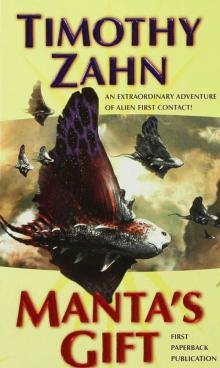 Manta's Gift
Manta's Gift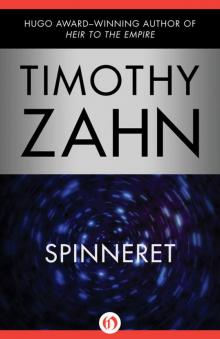 Spinneret
Spinneret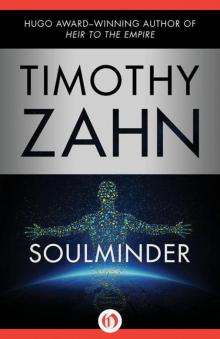 Soulminder
Soulminder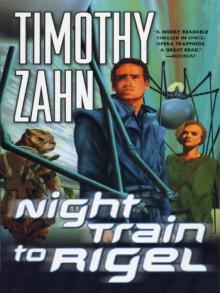 Night Train to Rigel
Night Train to Rigel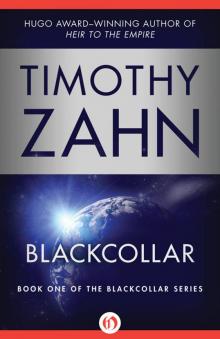 Blackcollar
Blackcollar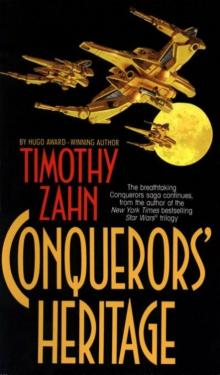 Conquerors' Heritage
Conquerors' Heritage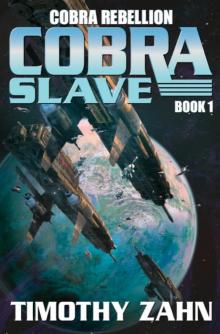 Cobra Slave
Cobra Slave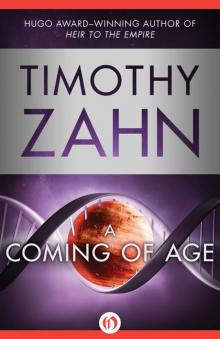 A Coming of Age
A Coming of Age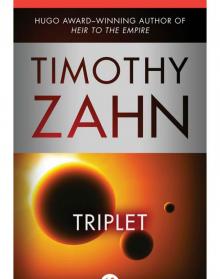 Triplet
Triplet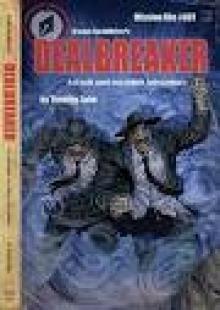 Dealbreaker
Dealbreaker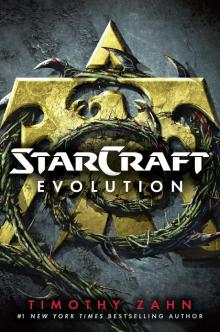 StarCraft
StarCraft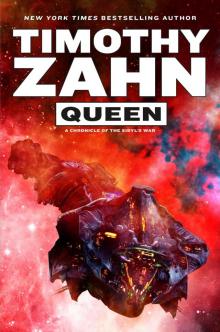 Queen
Queen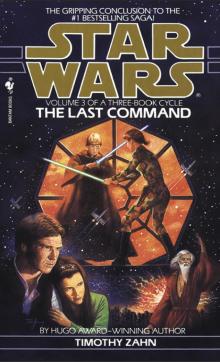 The Last Command
The Last Command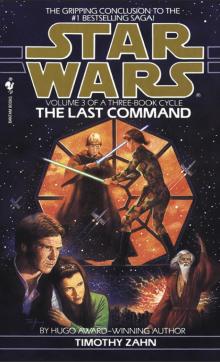 Star Wars: The Last Command
Star Wars: The Last Command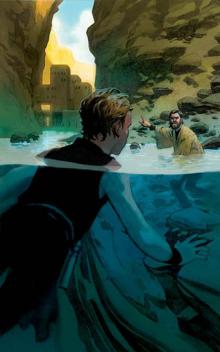 Star Wars Clone Wars: Changing Seasons
Star Wars Clone Wars: Changing Seasons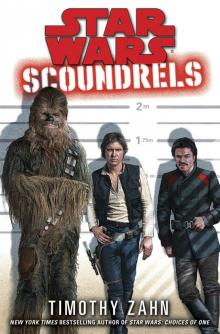 Scoundrels
Scoundrels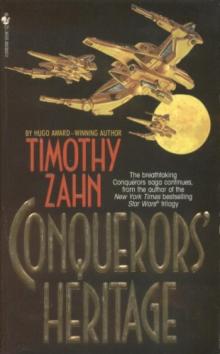 Conquerors 2 - Conquerors' Heritage
Conquerors 2 - Conquerors' Heritage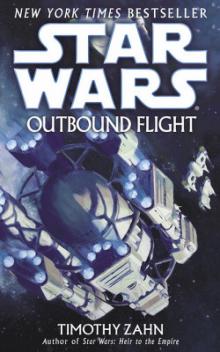 Outbound Flight (звёздные войны)
Outbound Flight (звёздные войны)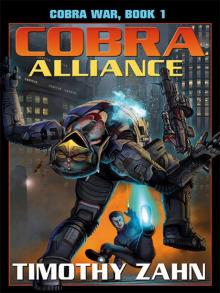 Cobra Alliance-Cobra War Book 1
Cobra Alliance-Cobra War Book 1 Hero of Cartao 2. Hero's Rise
Hero of Cartao 2. Hero's Rise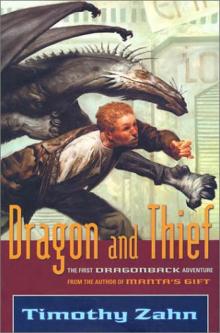 Dragon and Thief d-1
Dragon and Thief d-1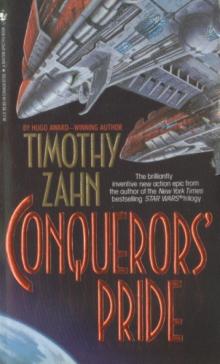 Conquerors 1 - Conquerors' Pride
Conquerors 1 - Conquerors' Pride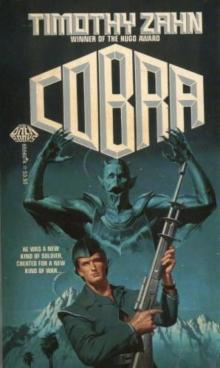 Cobra Alliance cw-1
Cobra Alliance cw-1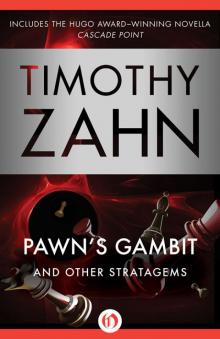 Pawn’s Gambit
Pawn’s Gambit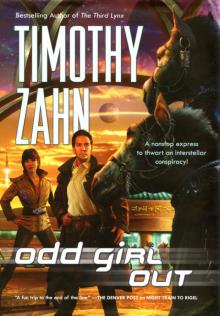 Odd Girl Out q-3
Odd Girl Out q-3 Dragon and Slave
Dragon and Slave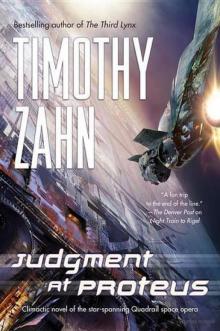 Judgment at Proteus q-5
Judgment at Proteus q-5 Night Train to Rigel (Quadrail Book 1)
Night Train to Rigel (Quadrail Book 1)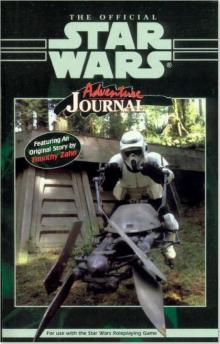 Star Wars: Adventure Journal 11: Command Decision
Star Wars: Adventure Journal 11: Command Decision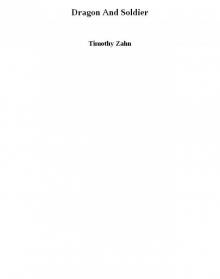 Dragon And Soldier
Dragon And Soldier Hero of Cartao 3. Hero's End
Hero of Cartao 3. Hero's End For Love of Amanda
For Love of Amanda Distant Friends and Other Stories
Distant Friends and Other Stories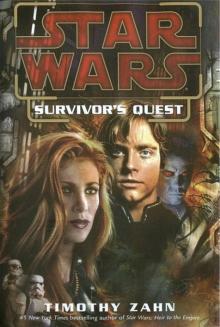 Star Wars: Survivor's Quest
Star Wars: Survivor's Quest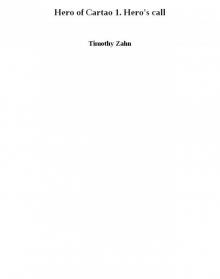 Hero of Cartao 1. Hero's call
Hero of Cartao 1. Hero's call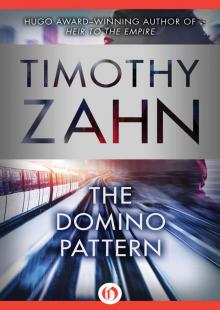 The Domino Pattern (Quadrail Book 4)
The Domino Pattern (Quadrail Book 4)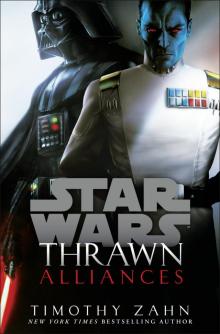 Thrawn_Alliances_Star Wars
Thrawn_Alliances_Star Wars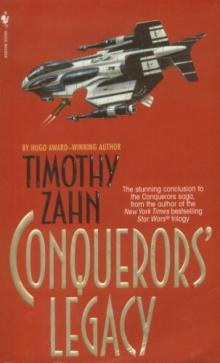 Conquerors 3 - Conquerors' Legacy
Conquerors 3 - Conquerors' Legacy The Blackcollar Series
The Blackcollar Series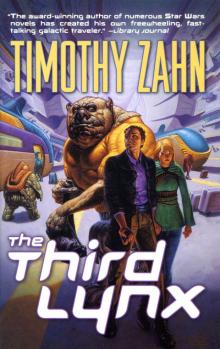 The Third Lynx q-2
The Third Lynx q-2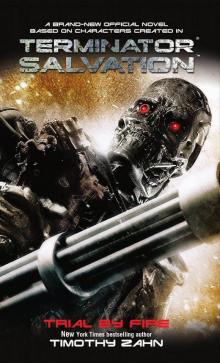 Terminator Salvation: Trial by Fire
Terminator Salvation: Trial by Fire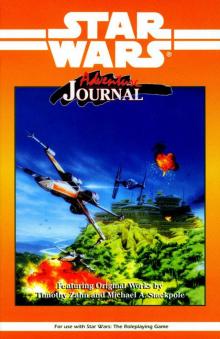 Star Wars - Mist Encounter
Star Wars - Mist Encounter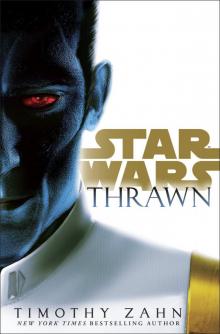 Thrawn
Thrawn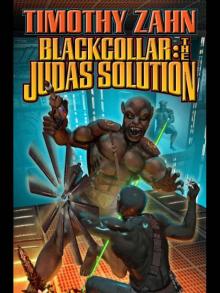 Blackcollar-The Judas Solution
Blackcollar-The Judas Solution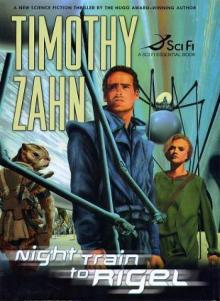 Night Train to Rigel q-1
Night Train to Rigel q-1 Cascade Point
Cascade Point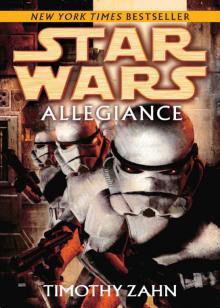 Allegiance
Allegiance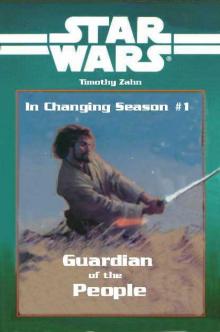 Star Wars - In Changing Season 1 - Guardian of the People
Star Wars - In Changing Season 1 - Guardian of the People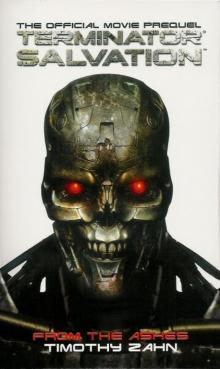 Terminator Salvation - From the Ashes ts-2
Terminator Salvation - From the Ashes ts-2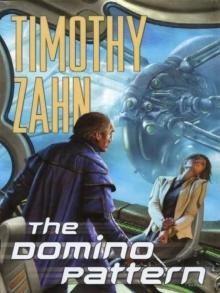 The Domino Pattern q-4
The Domino Pattern q-4 The Big Picture
The Big Picture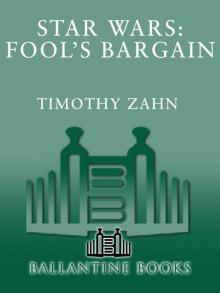 Star Wars: Fool's Bargain
Star Wars: Fool's Bargain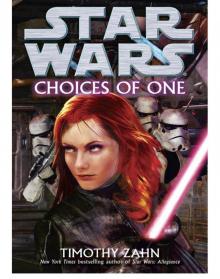 Star Wars: Choices of One
Star Wars: Choices of One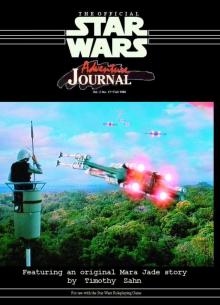 Star Wars - Jade Solitaire - Unpublished
Star Wars - Jade Solitaire - Unpublished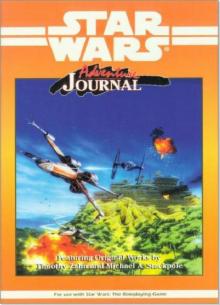 Star Wars: Adventure Journal: Mist Encounter
Star Wars: Adventure Journal: Mist Encounter Outbound Flight
Outbound Flight Star Wars - The Hero of Cartao - Part 1 - Hero's Call
Star Wars - The Hero of Cartao - Part 1 - Hero's Call Thrawn 1 - Specter of the Past
Thrawn 1 - Specter of the Past Survivor's Quest
Survivor's Quest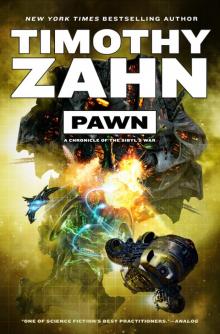 Pawn
Pawn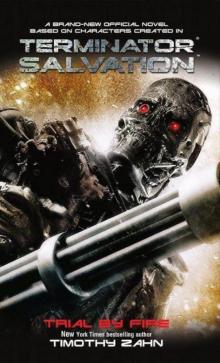 Trial By Fire ts-4
Trial By Fire ts-4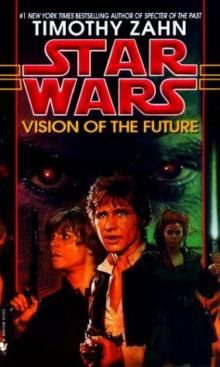 Vision of the future swhot-2
Vision of the future swhot-2 Star Song and Other Stories
Star Song and Other Stories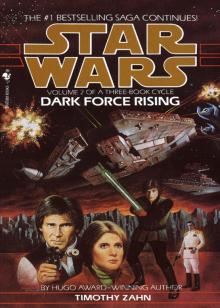 Dark Force Rising
Dark Force Rising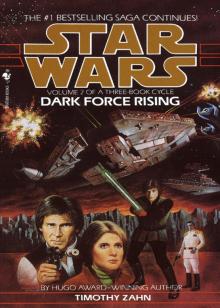 Star Wars: Dark Force Rising
Star Wars: Dark Force Rising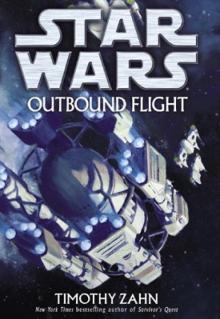 Star Wars - Outbound Flight
Star Wars - Outbound Flight Blackcollar: The Judas Solution
Blackcollar: The Judas Solution The Green And The Gray
The Green And The Gray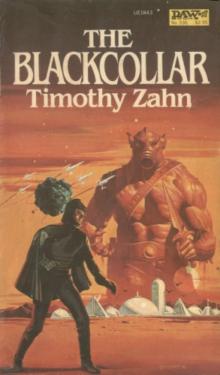 Blackcollar: The Blackcollar
Blackcollar: The Blackcollar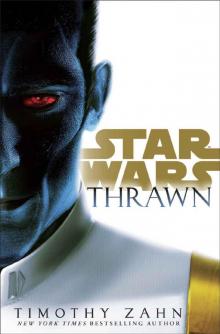 Star Wars_Thrawn
Star Wars_Thrawn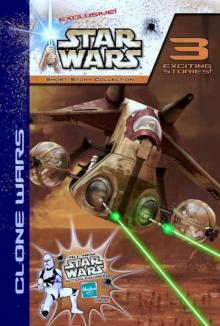 Star Wars - Duel
Star Wars - Duel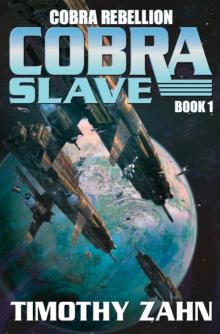 Cobra Slave-eARC
Cobra Slave-eARC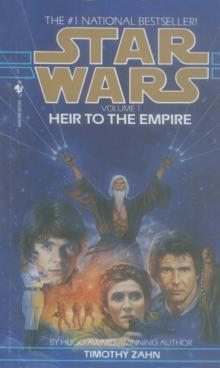 Star Wars: Heir to the Empire
Star Wars: Heir to the Empire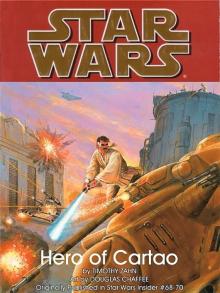 Star Wars: Clone Wars Stories: Hero of Cartao
Star Wars: Clone Wars Stories: Hero of Cartao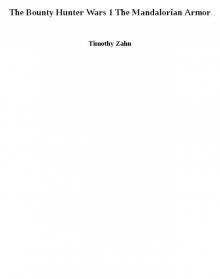 The Bounty Hunter Wars 1 The Mandalorian Armor
The Bounty Hunter Wars 1 The Mandalorian Armor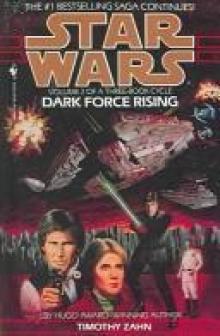 Dark Force Rising (Star Wars) swtt-2
Dark Force Rising (Star Wars) swtt-2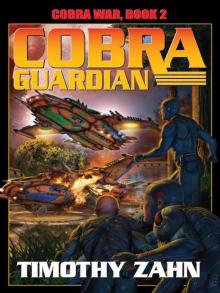 Cobra Guardian: Cobra War: Book Two
Cobra Guardian: Cobra War: Book Two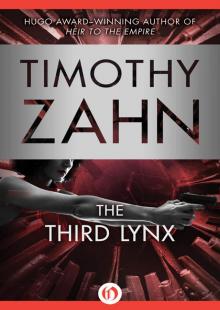 The Third Lynx (Quadrail Book 2)
The Third Lynx (Quadrail Book 2) Time Bomb And Zahndry Others
Time Bomb And Zahndry Others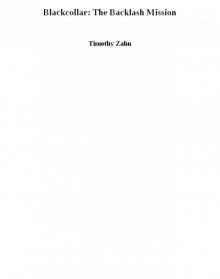 Blackcollar: The Backlash Mission
Blackcollar: The Backlash Mission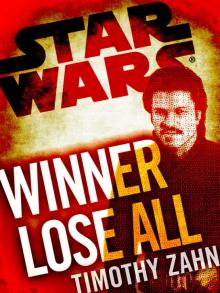 Winner Lose All--A Lando Calrissian Tale: Star Wars
Winner Lose All--A Lando Calrissian Tale: Star Wars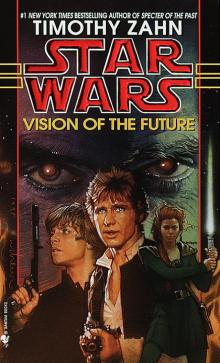 Star Wars: The Hand of Thrawn II: Vision of the Future
Star Wars: The Hand of Thrawn II: Vision of the Future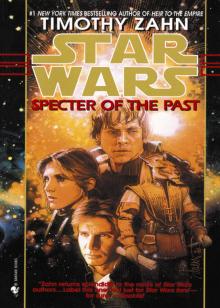 Specter of the Past
Specter of the Past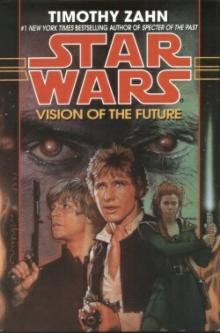 Star Wars - Hand of Thrawn 2 - Vision of the Future
Star Wars - Hand of Thrawn 2 - Vision of the Future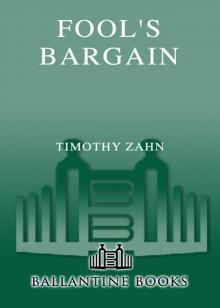 Fool's Bargain
Fool's Bargain From the Ashes
From the Ashes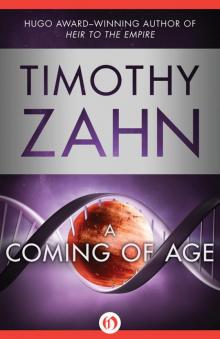 Coming of Age
Coming of Age